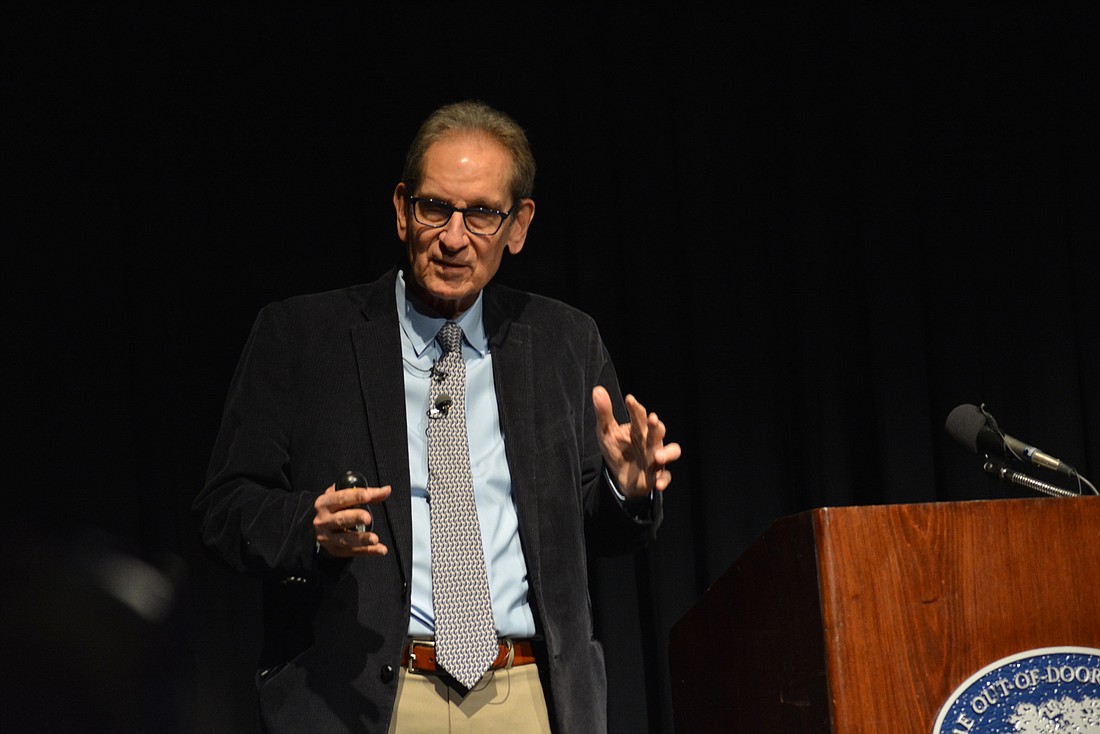- December 27, 2024
-
-
Loading

Loading

After hearing Dr. John Ratey speak about the mental benefits of exercise Jan. 22 at The Out-of-Door Academy in Lakewood Ranch, Esplanade Golf and Country Club resident Bob McNutt said he felt good that he had a workout that morning. Still, he felt it was not quite enough.
“It made me want to go out to the parking lot and walk home,” McNutt said. “I didn’t realize how important exercise was to brain health. It strengthened my commitment [to exercise].”
McNutt, 74, was one of more than 200 people to attend the first Main Health Matters lecture of 2020. The brain health series is provided by
the Brain Health Initiative, a Lakewood Ranch-based initiative. Its purpose is to increase brain health and brain health outcomes through research, collaboration, discoveries and education.
Ratey, a best-selling author and clinical professor of psychiatry at Harvard Medical school, is an expert on the brain-fitness connection and in neuropsychiatry, a branch of medicine dealing with mental disorders attributed to diseases of the nervous system.
Ratey said studies show exercise “turns on the brain,” which makes it ready to learn, increases creativity and helps it with executive functions.
“[Exercise] grows the brain,” Ratey said. “People don’t know that. We’re still getting so much information that it’s really important for people to have that view. When people exercise their bodies, they’re making their brains stronger. Exercise uses more brain cells than any other human activity.”
Ratey said if a middle-aged person begins exercising, studies show it can slow cognitive decline by 10 to 15 years.
Ratey said science is not conclusive about how much exercise is required to achieve optimal brain health, but he said the general recommendation is at least 30 minutes five days per week. Weight training and balance training are proving to be important. Coordinated movement, such as dancing with a partner, also has strong benefits.
“All kinds of exercise are useful,” Ratey said. “When you raise your heart rate, that’s a mirror of what’s going on in your brain.”
Lakewood Ranch’s Linda Deeter, who attended the first two of the Brain Health Matters lecture series in 2019 as well as the January lecture, said she has always been interested in health but is gaining more understanding about how taking care of the brain affects other aspects of life.
“I am so impressed with the quality of the work that’s already been done and how intense the work is going to be,” Deeter said of Brain Health Initiative. “I’ve learned to make brain health part of my everyday routine.”